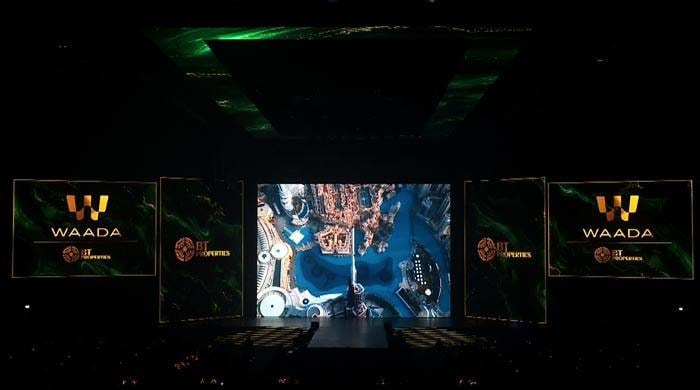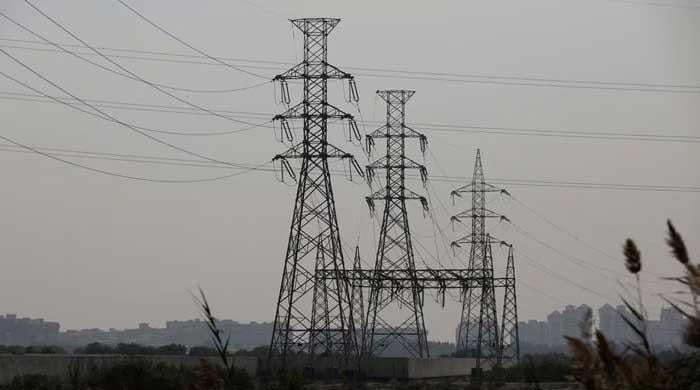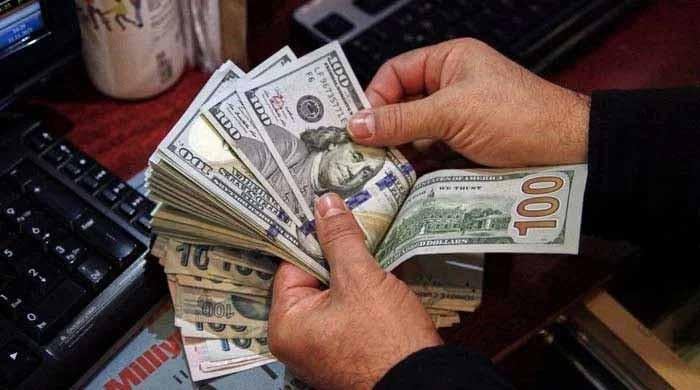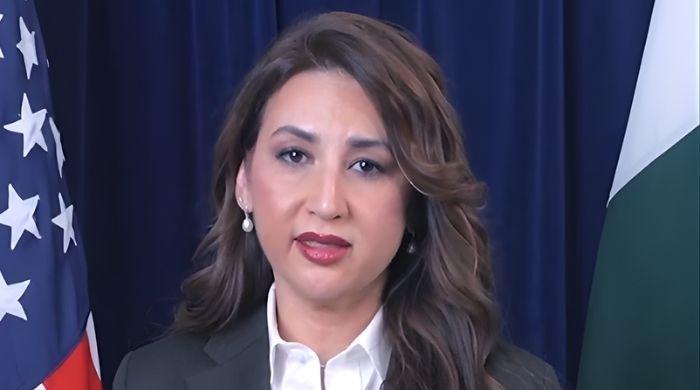ECC green-lights major hike in gas prices for domestic consumers
Rates for domestic consumers will go up by 43 to 335% after Cabinet approval
July 08, 2022
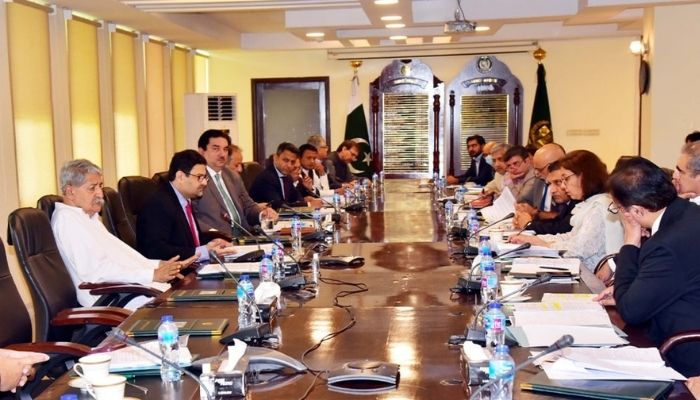
- The gas rates for domestic consumers have increased by 43 to 335%.
- Additionally, the gas price for export-oriented industry increased from $6.5 per MMBTU to $9 per MMBTU.
- The government did not increase the gas price for the second slab for users consuming up to 1 hm3.
The Economic Coordination Committee of the Cabinet (ECC) has approved an increase in gas prices for the residential, commercial, and industrial sectors.
The rates for domestic consumers have increased by 43 to 335%. However, there are now only five slabs as opposed to seven. The government did not increase the gas price for the second slab for users consuming up to 1 hm3; its price of Rs300 per MMBTU will remain unchanged.
Additionally, the gas price for the export-oriented industry increased from $6.5 per MMBTU to $9 per MMBTU. The ECC decreased the price per MMBTU for general industry by Rs100, from Rs1,450 to Rs1,350 per MMBTU, and for captive power, from Rs1,650 to Rs1,550 per MMBTU.
The official summary presented to the ECC proposed that the structure of seven slabs would be revised into five slabs by consolidating the last two existing slabs; the slab up to 0.4 hm3 would be merged with the slab up to 0.5 hm3, and the rate for the merged slab would be Rs173/MMBTU. There will be no minimum fee for domestic services.
Up to 0.5 hm3, the existing price stood at Rs121 per MMBTU which will be jacked up to Rs173/MMBTU, so its price will be increased by 43 percent, up to 1 hm3, the price will remain unchanged at Rs300 per MMBTU.
Up to 2 hm3, the existing price stood at Rs553 per MMBTU, which will go up to Rs696 per MMBTU, witnessing a surge by 26 percent. Up to 3 hm3, the existing price of Rs737 per MMBTU will be jacked up to Rs1,836 per MMBTU, registering an increase by 151 percent. Up to 4 hm3, the existing price of Rs1,107 per MMBTU will be increased up to Rs3,712 per MMBTU, registering an increase by 335 percent. Above 4 hm3 slab has been abolished.
For tandoor/roti, it is proposed to consolidate the slabs in the category of consumers because 95% consumers fall in the last slab of the existing structure. It is proposed that there will be only one slab and the rate for all tandoors will be equal to the Average Prescribed Price (Rs928/MMBTU).
A raise of 81% in the existing price has been proposed, although alternative fuel for commercial consumers is LPG, which is 4 times the cost of indigenous gas in terms of energy units, however, the proposed raise in the price is still much lower than the LPG price (58% of LPG price only).
The export industry (erstwhile zero-rated industry) in Punjab is provided RLNG at a subsidised rate of $ 6.5/MMBTU subject to the provision of budgeted subsidy. For the next fiscal year, the amount of subsidy allocated for this purpose in the budget is Rs40 billion and Finance Division has advised that the rate charged to the export industry in Punjab may be adjusted accordingly. Consequently, the existing price of $6.5/MMBTU is proposed to be revised to $9/MMBTU.
The non-export industry in Punjab is charged the full price of RLNG. Through a separate proposal, the priority order is going to be adjusted to make it possible to provide indigenous gas to the export and non-export industry in Punjab. Whenever that becomes possible, the export and non-export industry in Punjab will be charged the same rates for supply of gas as notified by OGRA.
For captive power and process consumers of non-export industry may be charged at Rs1,550/ininbtu or $ 8/mmbtu); Captive power units and process consumers of export industry may be charged at 1,350/mnibtu or $7/mmbtu).
The price of fertiliser feed didn’t witness much increase in the past because of its ultimate impact on farmers. The price is proposed to be around 50% of the Average Prescribed Price whereas the price for fuel gas use has been proposed to be twice the average prescribed price, i.e. Rs1,857/mmbtu.
The most efficient plants with over 60% efficiency are operating on imported gas whereas scarce natural gas is being provided at a much lower cost to the less efficient power plants. In order to encourage efficiency in the merit order while protecting the pass-on impact to consumers, the existing tariff has been proposed to be equated with the average prescribed price.
In order to control the consumption of diminishing indigenous gas reserves, CNG and cement sectors are lower on the merit order due to the overall consumption and the fact that most of the CNG stations have shifted to RLNG. Similarly, most of the cement industry has shifted to alternative fuels or is operating on RLNG. The price for CNG and cement sector is, therefore, proposed to be set at Rs2,321/mmbtu. The proposed tariff reflects an increase of 70% and 82% over the existing CNG and cement tariff.
According to a press statement issued by the Ministry of Finance after the ECC meeting, Federal Minister for Finance and Revenue Miftah Ismail presided over the meeting.
The Petroleum Division submitted a summary on the natural gas sale pricing FY 2022-23. It was submitted that since FY2015-16, gas prices had not been revised in line with revenue requirements determined by OGRA. This resulted in accumulation of revenue shortfall/tariff differential amounting to Rs547 billion as of March 2022. Similarly, gas sector circular debt remained at Rs299 billion in June 2018, increased to Rs1,232 billion on 31st March 2022.
To overcome revenue losses, contain gas sector circular debt, to sustain the supply chain and invest in exploration and production, the Petroleum Division placed broad principles/parameters for revision of the category wise consumer gas sale prices. The ECC approved the proposed revision in consumer gas sale prices with directions to further reduce gas rates for export and non-export industry/ captive power.
The Ministry of Industries and Production submitted a summary on the continuation of PM’s relief package, 2020, Sasta Atta initiative for KP and expansion of the Utility Stores network across Pakistan. The ECC approved the continuity of distribution of subsidised Atta under Prime Minister’s Sasta Atta Initiative on 1,200 additional sale points in KP for the two months from July 1 to August 31, with further directions to submit at the next meeting of the ECC a complete mechanism on distribution of subsidy packages through the USC.
The Ministry of Industries and Production submitted another summary on the provision of funds to the HEC to release the markup amount. The ECC allowed funds in the form of a grant amounting to Rs96.873 million to be released as a loan to the HEC in pursuance of ECC’s decision on November 22, 2021.
The ECC also approved funds amounting to Rs20.085 million in the form of grant and allowed its allocation through a Technical Supplementary Grant to the Ministry of Industries and Production. The funds have already been approved by the ECC in its decision on March 30, 2022. Further, the ECC directed the Privatisation Commission that in future, all liabilities may be mentioned in contracts between buyers and sellers of privatised entities.
The Ministry of National Food Security and Research submitted a summary on urgent advice relating to award of the second international wheat tender 2022 which opened on July 1, 2022 for 500,000 MT. The ECC after discussion scrapped the tenders and directed TCP to float a fresh tender for import of 300,000 MT of wheat.
On a summary of Power Division, the ECC granted approval for the issuance of a GoP sovereign guarantee of Rs10 billion for the construction of two units of 660 MW Super Coal Power Projects, Jamshoro, that is 90% complete, in favour of local banks/financial Institutions under Syndicated Term Finance Facility (STFF).
The Ministry of Economic Affairs submitted a summary on tax exemption from the payment of GST for the Japan International Cooperation Agency (JICA). In order to support the development activities carried out by JICA, the ECC allowed a blanket exemption from the payment of GST by JICA in respect of goods purchased by JICA. This exemption shall also be available on procurement of services by JICA received in Islamabad Capital Territory under the ICT Ordinance, 2001.




